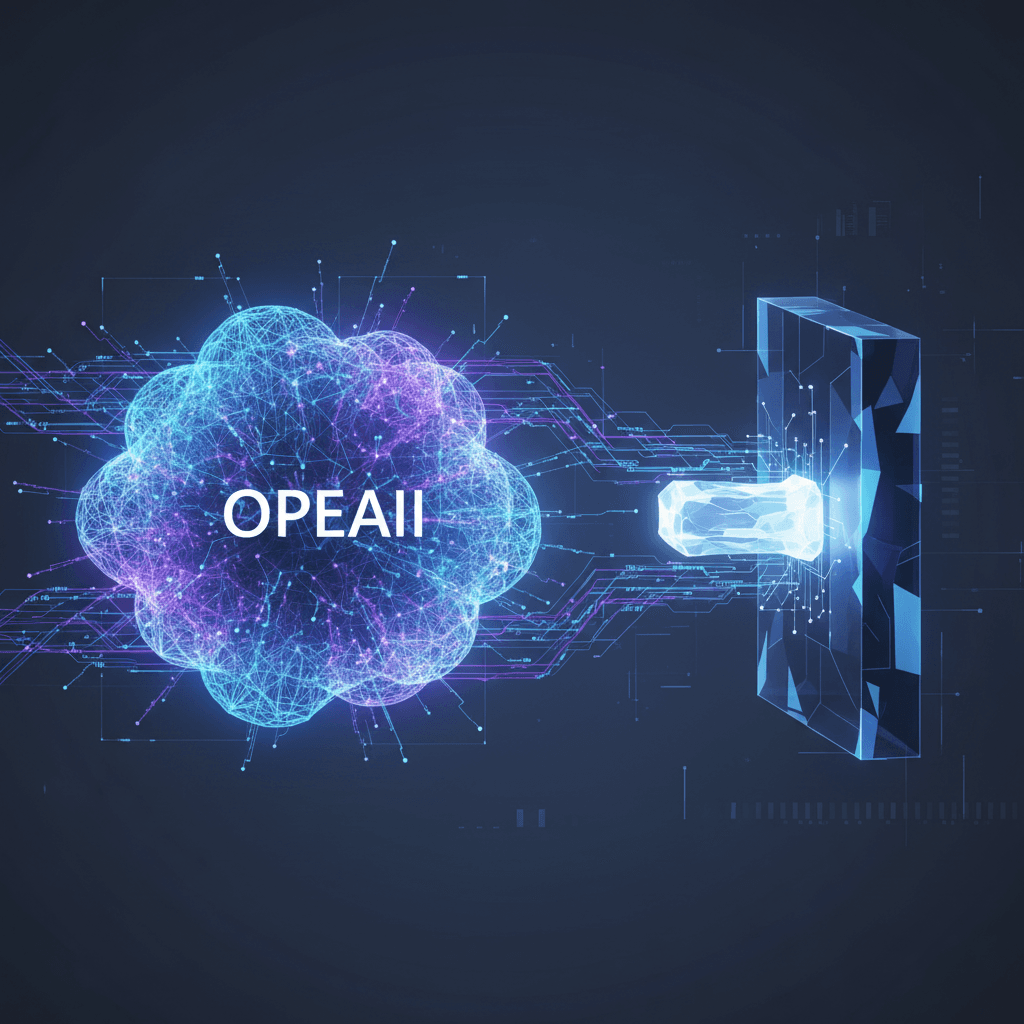OpenAI Drastically Cuts Microsoft Revenue, Microsoft Secures Major Equity Stake
OpenAI slashes Microsoft's revenue share for equity, funding its costly AGI quest and asserting greater independence.
September 14, 2025

A seismic shift is underway in the relationship between Microsoft and OpenAI, two of the most influential players in the artificial intelligence boom. According to recent reports, the AI research and deployment company is poised to drastically reduce the share of revenue it gives to its largest financial backer. In exchange for ceding a significant portion of its future earnings, Microsoft is expected to secure a substantial one-third equity stake in a restructured OpenAI. This strategic recalibration, signaled by a new non-binding agreement between the two tech giants, reflects OpenAI's soaring operational costs and its ambition to assert greater independence, a move with profound implications for the competitive landscape of the AI industry. The renegotiation comes as OpenAI transitions its corporate structure, moving away from its unconventional capped-profit model towards becoming a for-profit public benefit corporation (PBC), a change designed to help it raise the vast amounts of capital required for its mission to build artificial general intelligence.
The proposed terms of the new arrangement represent a fundamental change to one of the most pivotal partnerships in modern technology. According to a report from The Information, OpenAI intends to slash the revenue share allocated to Microsoft and other commercial partners from its current level of approximately 20 percent down to around 8 percent by 2030.[1][2][3][4][5] This adjustment could channel more than $50 billion in additional revenue back to OpenAI over the coming years, a critical infusion of capital as the company grapples with the immense and ever-growing expense of training and running its sophisticated AI models.[1][2][4] In return for this significant reduction in its revenue stream, Microsoft is reportedly set to receive a one-third stake in the newly formed for-profit entity, solidifying its long-term position as a major equity holder, though it will still not have a seat on the board.[1][6] This restructuring follows Microsoft's cumulative investment of $13 billion in OpenAI, which began in 2019 and previously entitled it to a complex profit-sharing agreement, including the right to 75% of profits until its investment was paid back and a 49% stake thereafter up to a capped amount.[7][8][9][10][11]
Several powerful forces are driving this strategic realignment. At the forefront are the staggering computational costs inherent in developing and deploying large-scale AI models. As OpenAI pushes the boundaries of AI with projects like the rumored Stargate supercomputer, its need for capital has become almost insatiable, potentially reaching hundreds of billions or even trillions of dollars.[12][4] Retaining a larger portion of its revenue is essential for funding these ambitious projects and securing its future.[13] Concurrently, OpenAI is actively seeking to diversify its partnerships and reduce its deep reliance on Microsoft's Azure cloud infrastructure. A clear signal of this intent was its recent, massive $300 billion, five-year cloud computing agreement with Oracle.[14][15] This move not only provides OpenAI with alternative computing resources but also fundamentally alters the exclusivity of its relationship with Microsoft, giving it more leverage in negotiations.[14][4][16] The corporate restructuring into a public benefit corporation is another key factor, creating a more conventional and attractive structure for future investors beyond Microsoft and simplifying its governance.[17][18][12]
The evolving partnership carries significant implications for both companies and the broader AI sector. For OpenAI, it marks a crucial step toward greater financial and operational autonomy, allowing it to chart its own course and manage its extensive research and development costs more effectively.[4][13] For Microsoft, the deal represents a calculated trade-off. While it sacrifices a large slice of direct revenue from OpenAI's success, it gains a more traditional and potentially lucrative long-term equity position in the world's leading AI company.[1][6] The shift also reflects a broader strategic pivot by Microsoft, which has begun to hedge its bets by investing heavily in its own in-house AI model development and partnering with OpenAI rivals like Anthropic.[14][19][20] This "coopetition" signals a maturation of the AI market, moving away from exclusive alliances toward a more dynamic, multi-vendor ecosystem where major tech firms collaborate with multiple AI labs and also compete with them directly.[18][20][15]
In conclusion, the renegotiation of the Microsoft-OpenAI partnership is more than a simple financial adjustment; it is a landmark event that reflects the changing economics and power dynamics of the artificial intelligence industry. As OpenAI transforms its corporate identity to fuel its capital-intensive ambitions, it is loosening the deep dependencies that characterized its early growth. Microsoft, in turn, is adapting its strategy from that of a primary patron to a major shareholder and diversified competitor. This evolution from an exclusive partnership to a more balanced, multi-aligned ecosystem is likely to foster increased competition and innovation, reshaping the development and commercialization of AI for years to come as the technology becomes further integrated into the global economy.
Sources
[4]
[6]
[10]
[11]
[12]
[13]
[14]
[15]
[16]
[17]
[18]
[19]